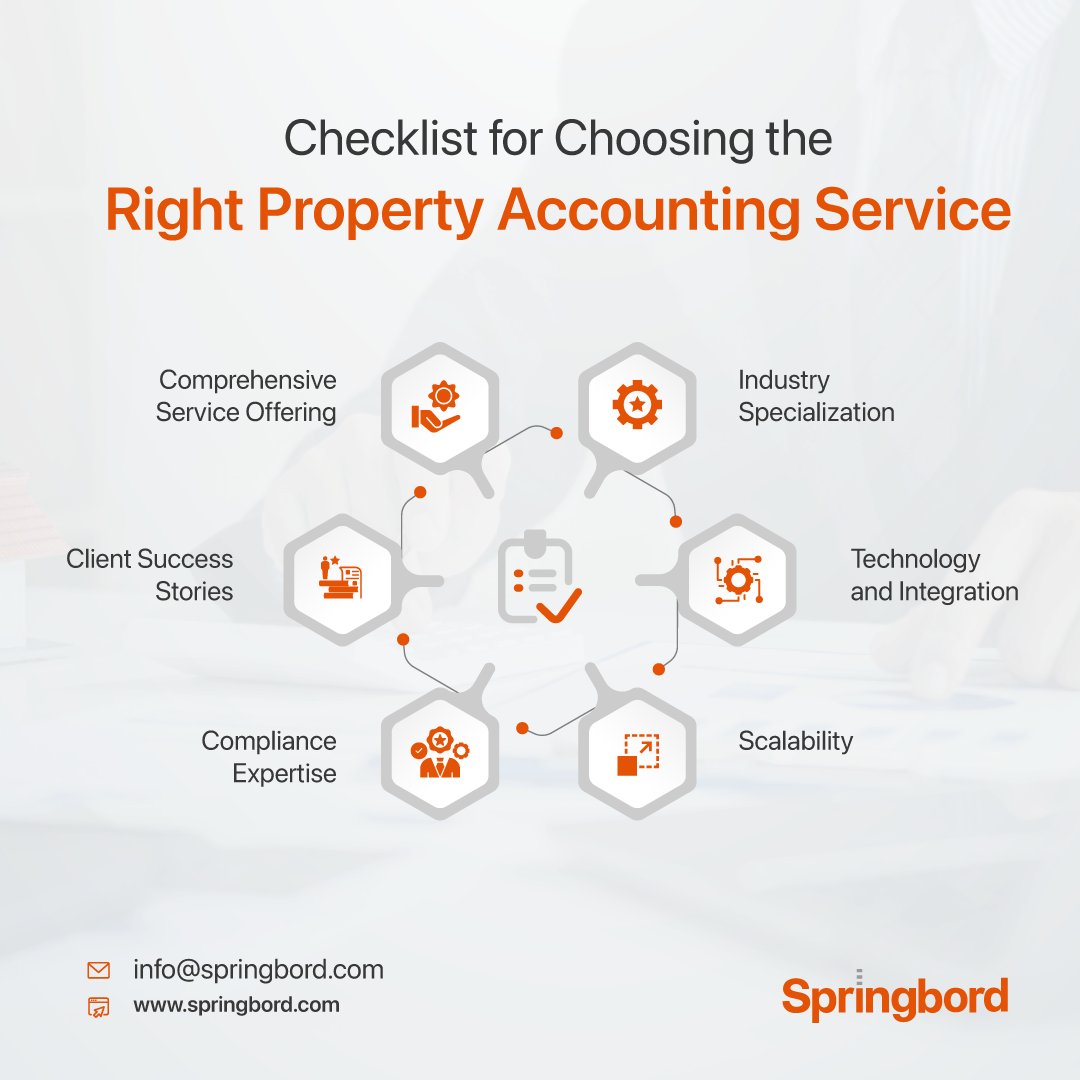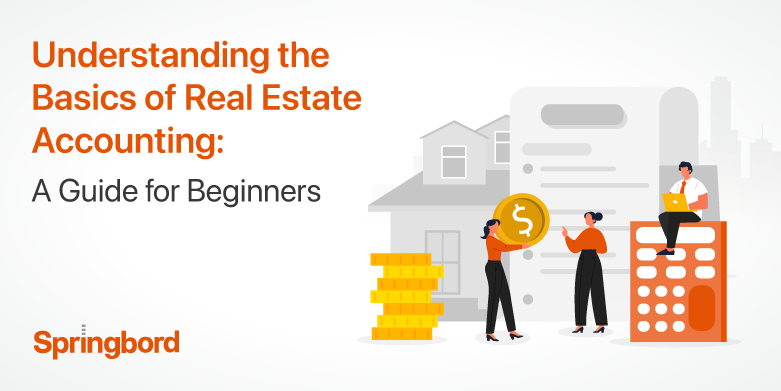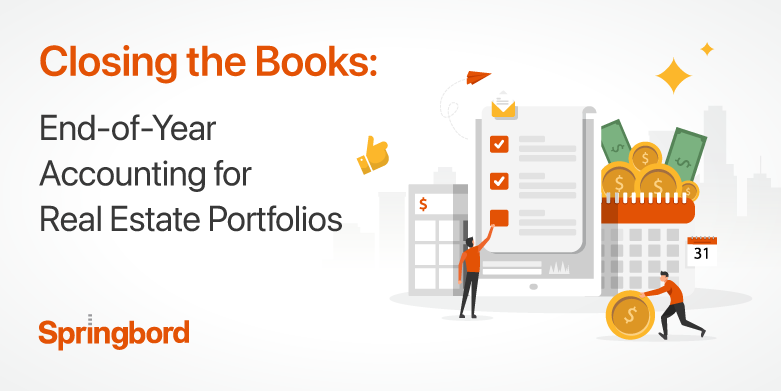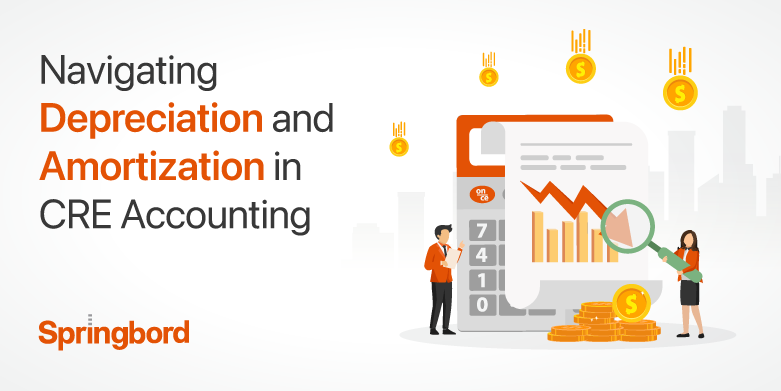 Read time 7 min
Read time 7 minIn real estate business management, property accounting emerges as a pivotal component, significantly influencing decision-making, regulatory compliance, and strategic financial planning.
The complexity of real estate transactions, alongside the evolving landscape of tax implications and regulatory frameworks, demands a nuanced understanding and professional handling of financial data.
This blog delves into the critical aspects of selecting the right property accounting service, tailored to address the unique challenges faced by real estate businesses.

Importance of property accounting in real estate business management
The significance of property accounting extends beyond mere financial record-keeping. It encompasses complex transactions, tax implications, and adherence to regulatory standards, all of which require specialized knowledge and expertise.
In commercial real estate, for instance, transactions are intricate, involving substantial financial flows and necessitating compliance with specific accounting principles such as the Generally Accepted Accounting Principles (GAAP). Furthermore, the advent of technology, including AI and machine learning, has transformed property accounting, introducing efficiencies and accuracies previously unattainable.
Springbord’s comprehensive real estate accounting services leverage such technologies to offer tailored solutions that address the unique challenges of the real estate sector, ensuring sustainable growth and operational excellence for businesses.
Scope of Your Real Estate Operations
The scope of your real estate operations is crucial for tailoring your accounting services to meet the unique challenges and opportunities your business faces.
These insights are designed to help real estate businesses align their accounting strategies with their operational goals, ensuring both compliance and efficiency.
Types of Real Estate Portfolios
Real estate portfolios can be categorized into four main types: commercial, residential, industrial, and mixed-use.
Each type presents distinct financial and operational characteristics.
- Commercial Real Estate: This category includes office buildings, retail spaces, and shopping centers. It’s characterized by longer lease terms and higher income potential but also requires significant management and maintenance efforts.
- Residential Real Estate: Comprising single-family homes, apartments, and condominiums, residential real estate is more accessible to entry-level investors. It often requires more hands-on management but provides consistent rental income.
- Industrial Real Estate: Warehouses, factories, and distribution centers fall into this category. Industrial properties often have long-term leases and lower turnover rates, offering stable cash flows but requiring specialized management expertise.
- Mixed-Use Real Estate: Combining residential, commercial, and sometimes industrial spaces, mixed-use developments cater to diverse tenant needs. They offer a blend of income streams but demand comprehensive management strategies.
Scale of Operations and Its Impact on Service Requirements
The scale of real estate operations significantly influences accounting service needs. Larger portfolios with properties across multiple categories and locations necessitate sophisticated accounting solutions that can handle complex transactions, regulatory compliance, and financial reporting requirements.
Conversely, smaller portfolios may require more streamlined services focused on efficiency and cost-effectiveness.
Springbord recognizes the unique challenges presented by different types of real estate portfolios and operational scales. Our bespoke accounting and management services utilize industry expertise and technology to cater to these varied needs.
Evaluating Property Accounting Services
When selecting property accounting services, real estate businesses must consider a range of factors to ensure they choose a solution that not only aligns with their current needs but also supports future growth and complexity.
This critical evaluation involves assessing the essential features of property accounting software, the expertise and experience of the service provider, and the level of service and support offered.
Here’s how these elements play a pivotal role in making an informed decision.
Essential Features of Property Accounting Software
- Integration Capabilities with Other Real Estate Management Systems
Seamless integration with existing real estate management systems is crucial for automating workflows, reducing manual data entry, and ensuring data accuracy across platforms.
This capability facilitates a unified view of operations, enhancing decision-making and operational efficiency.
- Scalability and Customization Options
As real estate portfolios grow and business needs evolve, accounting software must be able to scale and adapt.
Scalability ensures that the software can handle an increasing volume of transactions and data, while customization options allow businesses to tailor the software to their specific requirements.
- Advanced Reporting and Analytics
In the data-driven real estate sector, advanced reporting and analytics features enable businesses to gain insights into financial performance, tenant demographics, and market trends.
These insights support strategic decision-making and can highlight opportunities for optimization and growth.
Expertise and Experience of the Service Provider
- Specialization in the Real Estate Sector
Choosing a service provider with specialization in the real estate sector ensures that they understand the unique challenges and opportunities within the industry. This expertise is crucial for providing relevant advice and solutions tailored to real estate operations.
- Familiarity with Local and International Accounting Standards
Compliance with accounting standards is non-negotiable. A service provider familiar with both local and international standards can help ensure that financial reporting is accurate, compliant, and suitable for both domestic and international stakeholders.
Assessing the Level of Service and Support
- Onboarding Process and Continuous Support
A smooth onboarding process is essential for a hassle-free transition to new software. Continuous support, including responsive customer service and technical assistance, ensures that any issues are promptly addressed, minimizing disruptions to business operations.
- Training Resources and Accessibility
Access to comprehensive training resources ensures that staff can effectively use the accounting software. This training should be accessible, catering to different learning styles and schedules to ensure widespread adoption and proficiency.
At Springbord, we offer integrated, scalable, and customizable solutions backed by our expertise in the real estate sector and our commitment to compliance with accounting standards. Our focus on delivering exceptional service and support, from onboarding through to ongoing operations, exemplifies our dedication to empowering real estate businesses to achieve their financial management goals with confidence.
Advanced Considerations for Selecting a Property Accounting Service
Selecting a property accounting service involves not just assessing current needs but also considering how advanced technology and strategic considerations can offer long-term benefits.
Leveraging Technology for Strategic Advantage
- The Role of AI and Machine Learning in Property Accounting
AI and ML are revolutionizing property accounting by automating complex processes, enhancing accuracy, and providing predictive insights.
AI-driven tools can streamline transaction processing, detect anomalies to prevent fraud, and offer predictive analysis for better financial planning. ML algorithms can analyze historical data to forecast trends, assisting in more informed decision-making.
- Integration with Blockchain for Transparency and Security
Blockchain technology offers unprecedented transparency and security in financial transactions. Its application in property accounting can enhance trust among stakeholders through immutable records of transactions, ownership, and compliance.
Blockchain can also streamline contract management and escrow processes, reducing errors and enhancing efficiency.
Cost-Benefit Analysis of Outsourcing vs. In-House Management
Choosing between outsourcing property accounting services and managing them in-house requires a thorough cost-benefit analysis.
Outsourcing can offer access to specialized expertise and advanced technology without the overhead of hiring and training staff.
However, businesses with highly specific needs or those prioritizing direct control over their financial operations may find in-house management more suitable. Factors such as cost, scalability, and the complexity of operations should guide this decision.
Evaluating the Impact on Investor Relations and Reporting
The quality of financial reporting and investor relations is paramount for real estate businesses seeking to attract and retain investment.
Advanced property accounting services can significantly improve the accuracy and transparency of financial reports, bolstering investor confidence. The ability to provide detailed, timely financial data and analytics can enhance investor relations, offering a clear view of the business’s financial health and growth prospects.
Selecting the right property accounting service extends beyond immediate accounting needs. It involves a strategic assessment of how technology, cost considerations, and the impact on investor relations can enhance a real estate business’s long-term success.
Springbord’s suite of services is crafted to address these advanced considerations, ensuring that our clients are well-positioned to meet their financial and strategic goals.
Making the Decision
Choosing the right property accounting service is a tough decision for real estate businesses, aiming to ensure not only compliance and efficiency but also strategic growth and sustainability.
Checklist for Choosing the Right Property Accounting Service
When selecting a property accounting service, businesses should consider:
- Comprehensive Service Offering: Ensure the service covers all necessary aspects of real estate accounting, from day-to-day bookkeeping to complex financial reporting and analysis.
- Industry Specialization: The provider should have deep expertise in the real estate sector, understanding its unique challenges and opportunities.
- Technology and Integration: Evaluate the technological capabilities, including the use of AI, machine learning, and blockchain, and ensure seamless integration with existing systems.
- Scalability: The service should be able to grow with your business, accommodating expanding operations without compromising quality or efficiency.
- Compliance Expertise: The provider must be versed in both local and international accounting standards, ensuring your business remains compliant.
- Client Success Stories: Look for evidence of successful partnerships in the real estate sector, particularly with businesses similar to yours.
Conclusion
Navigating the complexities of real estate business management demands a strategic approach, especially when it comes to property accounting.
The right property accounting service not only ensures compliance and operational efficiency but also paves the way for sustainable growth and strategic decision-making. As we’ve explored, selecting a service that aligns with your business’s unique needs considering technology integration, scalability, expertise, and level of support is crucial.
Springbord stands ready to partner with real estate businesses, offering tailored accounting and management services that address these multifaceted requirements.
Don’t let the complexities of property accounting hinder your real estate business’s potential.
Choose Springbord for comprehensive, forward-thinking accounting solutions that promise not just to meet but exceed your expectations. Connect with us today to explore how we can support your growth and operational excellence.







